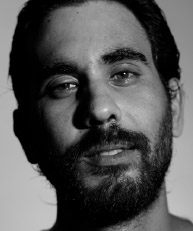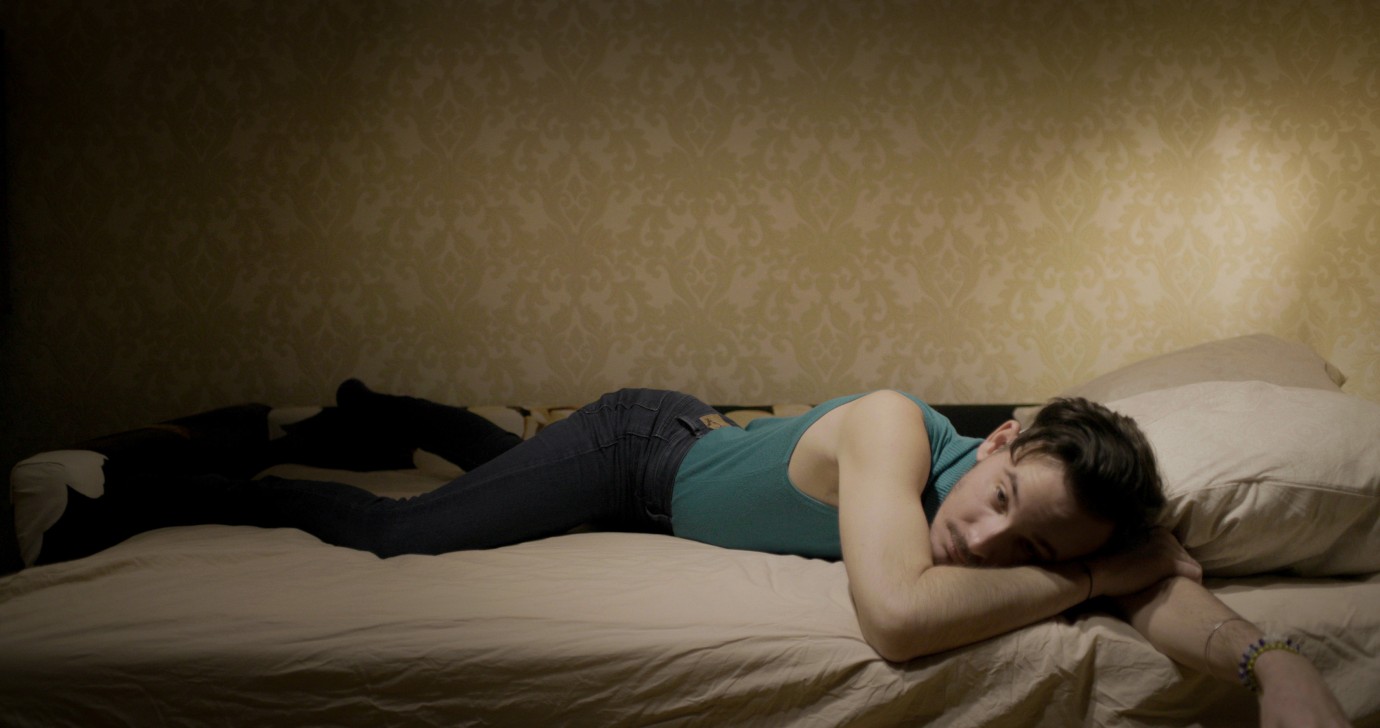Festivals
 Camera Lucida: Regards the characters in the film, you focus a lot on not just migrants to Russia in Moscow but of course the queer community as well. You talked about the social climate in Havana in 2020 and I was wondering what is the treatment like of the LGBT community in Cuba from 2020 to today?
Camera Lucida: Regards the characters in the film, you focus a lot on not just migrants to Russia in Moscow but of course the queer community as well. You talked about the social climate in Havana in 2020 and I was wondering what is the treatment like of the LGBT community in Cuba from 2020 to today?
Luis Alejandro Yero: It is fine because for many years after the Cuban Revolution it was homophobic for many decades and punishment included isolating the gay community in refugee camps. It was one of the dark sides of the revolution that has not been told. However, since the 1990s, let's say there were attempts by Mariela Castro Espín to make a conscious attempt for queer rights. That was a motion that she started and I remember the first gay party I attended eight years ago was in a basement in Havana and at any moment the police could appear and send you to jail. It was something that was still forbidden. Suddenly, my generation started ideas through the internet and the media that had begun after the fall of the Soviet Union. All these things helped to change Cuba in a cultural and generational way, but also politically as well. So, the group parties were allowed and it was fine because, for example, in front of the government at the National Theatre, there were suddenly major gay parties on every Saturday taking place. I remember being scared at first as this was happening opposite one of the main government buildings but it was fine. Another example is that this year we have seen the paradoxical face of Cuba. A couple of years ago there was the writing of a new family code and laws which went against the most oppressive laws of rights and freedom. At the end, what you see in all this complexity is that the government has recognized and applied these rights. Cuba is still a homophobic country and so it is going to need a couple of decades and a new generation to change things in a major cultural way. This is not just happening in Cuba but in many countries around the world.
Camera Lucida: Coming from Cuba, or leaving Cuba, did your subjects have any feelings about going to Russia or going to Moscow being that it is closely related to Cuba politically, but even at the same time, before 2020 there were feelings that Moscow is not very progressive that there was still a kind of hostile anti-Europe, anti-West attitude, even though it had seemed to progress. Under Putin, it seemed to have regressed to where it is now and I was wondering if the subjects in your film had any fears or reservations about going to Moscow?
Luis Alejandro Yero: I think that most of the subjects in my film that left the country (Cuba) did not have cultural capital or information capital. Therefore, there was a lack of privilege and most of the people at the beginning of this stampede, when they come to Moscow they don't even know where they are going to live or with whom. Russia is one of the worst countries for queer people and they don't have the panorama or consume the same information, so didn't know where they were going to travel or live and at the same time this situation talks about their desperation. People were leaving the country because Russia is one of the few nations that doesn't allow for a Visa for many people. Most people don't know that Russia does not belong to the Schengen space and for most of the queer Cuban people that travelled through Russia, they don't have any idea of the Russian national politics and that this gets worse every year.
Camera Lucida: With the internet you might do research on what the social climate is like in Russia, or in Moscow, but is it a different reality to when you actually go there?
Luis Alejandro Yero: Even in Havana the way they consume media is not always the same with all the different media. Most people consume video clips or are chatting with friends. They don't have the same consumption of media as others. Most of them don't have the information and are naive how they prepare and travel. They live however they can in order to make it work for them in life.
Camera Lucida: You went to Moscow at the end of 2021 to do fifteen days of shooting. Tell me about your experiences, impressions or tensions that you experienced there. Was there anything that surprised you or confirmed your preconceptions?
Luis Alejandro Yero: Let's say, how we shot the film was a response also to my own situation as a filmmaker so there is also a political statement in that way of shooting. The film was made with very low resources and by that I mean the minimum. The approach is either to make a film with a lot of money or with very little money, and not in between because in that situation the characters never give anything. So that idea of making a film with very few resources was intended to give the same effect that the characters were experiencing, and that was very important, to make a relationship from behind the camera and in front of the camera. Also, most of the characters and the production team were of the same age, around thirty-years-old, so from the same generation and in the situation. This means that I am just like them with the same struggles and I remember all the time during the production that I could be one of them in Moscow. One friend was in Greece after crossing a lot of borders from Moscow and I found myself starting to cry as I felt a lot of sadness, but also anger because I wonder why so many Cuban people of my generation has to be in this situation. It is because of the lack of capacity of the government that I could also be easily living in this situation.
Camera Lucida: Did you plan to leave when you did or was it because the beginning of the war, the Russian invasion of Ukraine, forced you to leave early?
Luis Alejandro Yero: We started shooting and we had a schedule of about five days. I spent three months in Moscow and I was all the time working, making research with the people I met, going to clubs, but I never had much time to do anything else or see the city in another way. However, before the end of the shooting days I got Covid. Then there was also the war starting. I was hoping that by the time I got my plane home I was recovered from Covid. Because of all this I said to one of my producers that we had to leave as soon as possible. I was lucky because on one of the other days all flights from Russia were cancelled. The same desperate way we entered the space we also had to say goodbye. However, regardless of my personal situation, the most important aspects were the characters of the film.
As for current and future plans, Luis Alejandro Yero said that in the near future he will be continuing to teach students at the International Film and Television School in Cuba and is also working on new projects of his own, more imminently a fictional one.
By Steven Yates


